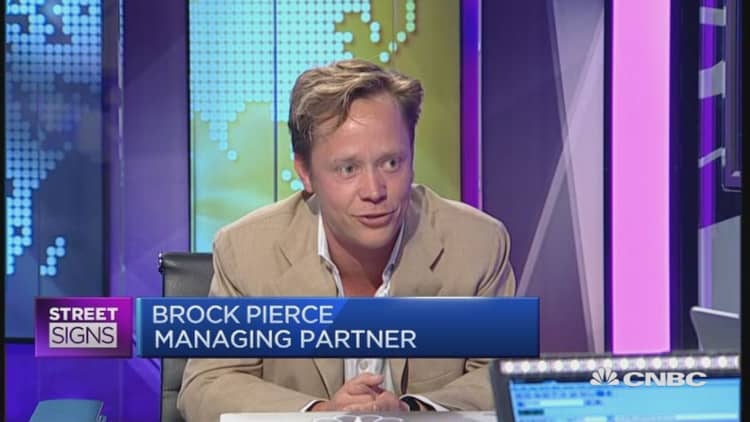Several global banks including Santander and UBS are conducting real-world trials using blockchain technology for international cross-border payments, a move that could make the process faster and cheaper.
Santander, UniCredit, UBS, ReiseBank, CIBC, National Bank of Abu Dhabi (NBAD), and ATB Financial, are using technology provided by U.S. start-up Ripple to test use cases for blockchain in the real world. They are among the first banks to trial real-world use cases. So far, many tests have been done in-house at a number of large institutions.
Blockchain works like a huge, decentralized ledger for the digital currency bitcoin which records every transaction and stores this information on a global network so it cannot be tampered with. It's this technology that banks feel can be utilized in areas from remittances to securities exchanges.
Transfers 'like iMessage'
Ripple's focus is on providing this technology to banks looking to make cross-border payments more efficient.

At the moment, an international payment may take a few days to make with a very high cost. Chris Larsen, chief executive of Ripple, said that the technology could give banks a 33 percent reduction in their operating costs during this process. He said that Ripple's technology could allow banks to move money "in seconds".
"Banking now is like sending a letter, you send it you don't know if it reached there. Ripple is more like sending an iMessage, you send it and you immediately know," Larsen told CNBC in a phone interview.
The focus for the banks is on high-volume but low-value transactions. These can often be expensive and not profitable for the banks because it takes a lot of effort to move the money and the percentage cut won't be as high as for a larger transaction. Ripple says that it can potentially make these transactions profitable.
"Banks can send big corporate payments through existing channels or send a small payment through Ripple. They don't have to rip out existing infrastructure, they can use Ripple to make the transactions more profitable or more efficient," Larsen said.
The world's major banks are all interested in blockchain technology. A consortium of banks is working together with fintech firm R3 to look at its applications. And tests that have been done so far have all been in-house. Earlier this year, for example, Barclays trialed a way to trade derivatives using so-called "smart contracts" and blockchain-like technology.
Santander trials blockchain app
But banks are slowly beginning to bring blockchain technologies to the real world. Using Ripple's solution, Santander has created an app built on the blockchain that facilitates international payments. Users can transfer between £10 and £10,000 and payments can be made from sterling to euros and U.S. dollars. Currently, payments made in euros can be sent to 21 countries and U.S. dollar payments to America only.
"We recognize a lot of pain points around international payments and why there is a lot of disruption in that space and we saw an opportunity with blockchain, with Ripple, to address some of those pain points," Ed Metzger, head of innovation technology operations at Santander U.K., told CNBC by phone.
Payments has been a key area of a bank's business model being attacked by nimble start-ups such as TransferWise and WorldRemit, who offer cheaper and faster solutions. Blockchain tech is seen as a way for banks to cut costs in a number of areas.
Santander's app is only being used by staff currently and the results of that trial will be used to assess whether to bring this to its customer base, Metzger said.





